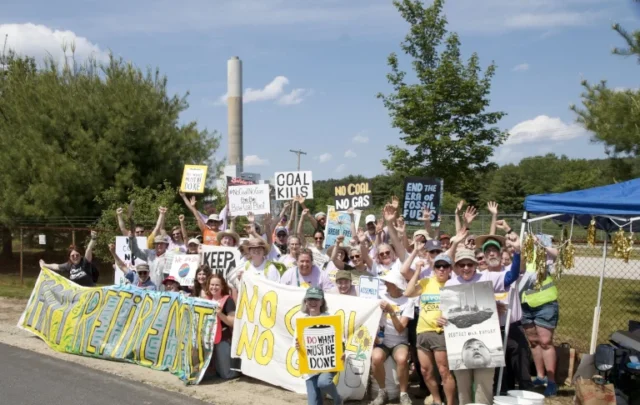Speeding while driving can be deadly. It’s why limits are enforced so traffic can come more safely to a halt when needed. The same ought to be true for tackling the climate crisis but alas no one was caught speeding at CoP28 in the UAE.
Which is odd given the summit’s closing text provides ample licence to keep the pedal to the metal. As a consequence, the stopping distance required to avoid a serious collision with climate breakdown is now in history’s rear view mirror.
That is because limiting global average temperature to below 1.5°C by the century’s end is now implausible without wishing on the techno-star of vast carbon dioxide removal. This is well understood by leading climate scientists but it is depressingly rare for them to break ranks and say so publicly. There are notable exceptions including James Hansen, NASA scientist Peter Kalmus and former IPCC chair Sir Bob Watson.
It should not be a controversial public stance. As is well documented, global greenhouse gas emissions continue to rise year-on-year in the face of repeated IPCC warnings that they must peak by 2025 and be reduced by almost half come 2030, to keep the 1.5°C goal within reach.
In the foreword to our new report published by PeopleGetReal.org and entitled: How a fixation with implausible climate targets is postponing required action, Professor Sir Bob Watson elaborates on his position. He labels global climate targets “fantasies” which “protect all of us – but especially those who are inside the climate bubble – from accepting the reality that it is now too late to ‘fix the climate’ within the confines of business-as-usual”.
It is revealing of a disturbing dynamic of the mainstream consensus of climate action. Simply put, by toeing the consensus line publicly trusted institutions and individuals are inadvertently suppressing the prospects for the meaningful response to climate breakdown they say is so urgent.
In the report, we assert this dynamic is rooted in a culturally sanctioned insistence that there is (always) time to fix things when it comes to climate breakdown. For those publicly upholding the existing consensus, it is nothing short of an optimism imperative.
You may even recognise the script: no matter how much time has been lost to inaction, no matter how implausible the pathways for meeting climate goals become, nobody puts anything in the rearview mirror. It is why the window never quite closes on an implausible climate target and the metaphorical midnight hour never seems to arrive.
The impact on the general public is neither effective nor benign when it comes to instilling urgency. That’s because the consensus view of climate action, once sheared of scientific warning and emergency mode messaging, is really one of underlying reassurance. And therein resides inadvertent permission for the public to continue minimising the reality of climate breakdown.
But this is not one-way traffic. The absence of widespread and deeper public support for a meaningful response to climate breakdown has a rebound effect. It allows those in positions of power to tell themselves that the public isn’t on board with major policy interventions. And so it goes… Everyone ends up with the story they need to render life unchanged.
This explains why proponents of meaningful climate action are unable to attract enthusiastic public support, and reverse a patent lack of political will to abruptly reduce greenhouse gases. Instead, continuing to publicly insist that 1.5°C is still within reach ends up giving polluting industries and politicians a free pass for resisting rapid decarbonisation, as per CoP28’s closing text.
A way forward
Not everybody, however, is buying the mainstream consensus on climate action. This is especially true of the people that really matter: everyday citizens. A national poll, commissioned from market research company Ipsos as part of the report, revealed that just one in four UK adults (26%) believe global average temperatures are likely to, or definitely will, be limited to 1.5°C by 2100.
Over one in five (21%) UK adults already believe it is now too late for the IPCC’s March 2023 topline of ‘urgent climate action can secure a liveable future for all’. Interestingly, those taking this view still judge a range of examples for climate action, undertaken by governments or individuals, to be effective in reducing the rate/impact of climate change.
Of the 51% of UK adults who believe there’s ‘just enough time’ for the IPCC’s topline, only 19% of this majority believe governments are prepared to make ‘immediate and deep emissions reductions across all sectors’ – as put forward by the IPCC – to keep the 1.5°C temperature goal within reach.
The poll findings suggest to us at least that believing ‘it’s now too late’ doesn’t mean giving up. In the same way that maintaining there’s ‘just enough time’ doesn’t mean believing urgent action is likely to happen.
Equally revealing, the poll in our view provided no evidence to support the optimism imperative undergirding climate communications. The national survey revealed that while optimism is held as important by half of UK adults (51%) when being given ‘bad news’ by trusted messengers about climate change, significantly more – nearly seven in 10 – said it is important ‘bad news’ is shared whether there are solutions or grounds for optimism or not (68%).
With the passing of the 1.5°C goal, it is clear the world cannot avoid a serious collision. Accepting this does not for a moment mean eight billion of us simply shrug and wait for impact. If it is to survive, civilisation still needs to perform an emergency stop and citizens will need to be front and centre. Our reading of the data is that the general public is ready to be told what is actually going on, and ready to receive invitations to help them do something about it.
—-
*Marc Lopatin and Helena Farstad are co-founders of PeopleGetReal.org which seeks to encourage a citizen-led reality check of major climate targets.
*Download the report at www.peoplegetreal.org/downloadsurvey/





